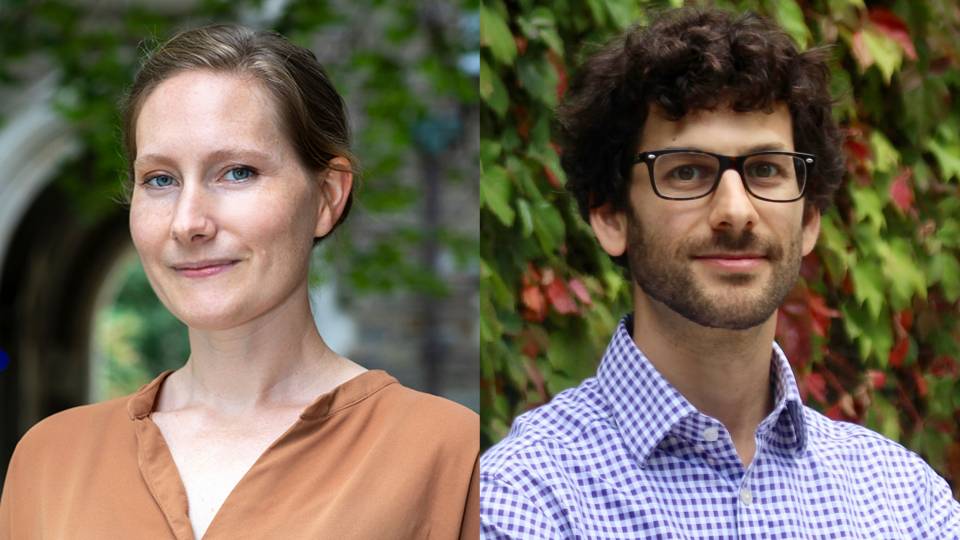The Pew Charitable Trusts announced today that Princeton ecologists Shane Campbell-Staton and Sarah Kocher are members of the newest class of the Pew Scholars Program in the Biomedical Sciences, two of the 22 early-career scientists who will receive four years of funding to explore pressing questions in health and medicine.
“Biomedical innovation is essential to solving both current and emerging global health issues,” said Susan K. Urahn, Pew’s president and CEO. “We are pleased to support this talented and inspiring cohort and their research.”
Campbell-Staton and Kocher were chosen from 197 applicants nominated by leading academic institutions and researchers across the United States. As Pew Biomedical Scholars, they join the community of more than 1,000 scientists who have received Pew awards since 1985. The scholars meet annually to build connections and exchange ideas. “This new class embodies diverse, creative and unique new avenues of biomedical research,” said Craig Mello, a 1995 Pew scholar and 2006 Nobel laureate in physiology or medicine who chairs the national advisory committee for the scholars program. “With support from Pew, these scientists will have not only resources but access to a network of colleagues and advisors that will spark new discoveries and push the boundaries of their work. I look forward to seeing where their discoveries take them.”
Shane Campbell-Staton

Shane Campbell-Staton
Campbell-Staton, an assistant professor of ecology and evolutionary biology (EEB), "will investigate the evolution of protective, anticancer responses in wolves that live in the Chernobyl Exclusion Zone," according to the award citation, using the predators living near the failed nuclear power plant as a novel case study to examine how genetic variation can help protect us from cancer.
Campbell-Staton's research areas include biodiversity and ecology, where he is especially focused on evolution in the Anthropocene -- the current geological age in which human activity has been the dominant influence on climate and the environment. In this area of research, he focuses on such factors as, for example, the effects of urbanization, climate change, poaching, pollution and invasive species on wildlife populations. He also studies animal performance, gene expression and genomics to understand the lasting biological impacts of human activities on wildlife populations.
Sarah Kocher

Sarah Kocher
Kocher, an assistant professor of EEB and the Lewis-Sigler Institute for Integrative Genomics (LSI), "will examine how genes and environment shape social behavior in sweat bees," according to the award citation.
Kocher integrates methods from many different areas of biology to study the evolution of animal behavior. After completing her B.S. as one of the first graduates of the Integrative Biology program at the University of Illinois, Urbana-Champaign, she went on to study the genetic and physiological underpinnings of queen-worker interactions in honey bees at North Carolina State University, where she completed her Ph.D. in 2009. At Princeton, her lab group combines genetic studies with field work and laboratory observations to understand the wide variations in insects' social behavior. By weaving together genetics, genomics, observations and experiments, her team is able to identify both the key molecular mechanisms underlying these behavioral variations and the environmental factors that influence them.






